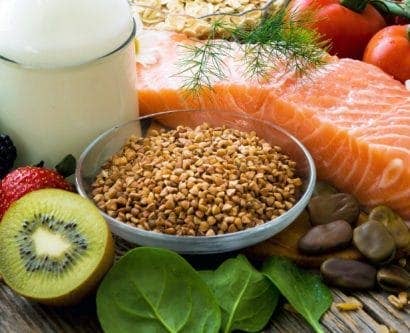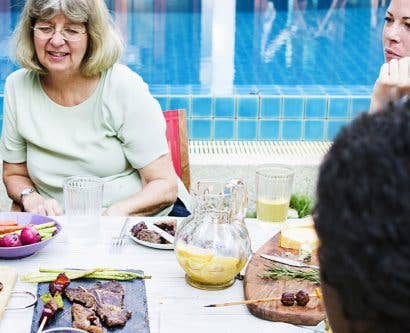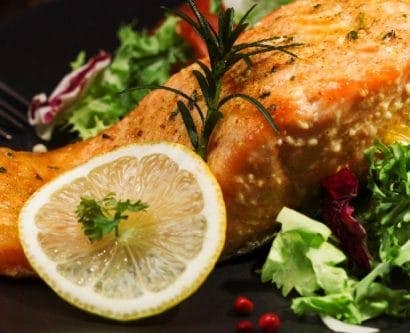Healthy Eating Guide for British Teenagers
As a teenager you are growing and developing rapidly, so it’s essential that you give your body the nutrition it needs. A healthy diet will ensure you receive all the energy you require – and it doesn’t necessarily mean that you have to sacrifice all your favourite foods either!
As long as you get the balance right, a healthy diet can include a wide range of different foods. Here’s our guide to healthy eating to help you learn more.
How Many Calories Should Teenagers Eat?
There is no hard and fast rule, but it’s recommended that teenage boys aim to consume around 2500 calories per day and teenage girls consume around 2000 calories per day. If you lead a particularly active lifestyle, then you may need to eat more than this to fulfil your energy needs.
The Eatwell plate, developed by the Food Standards Agency, shows how you should balance your meals in order to get the best nutritional results and keep the number of calories you eat down. In simple terms, you should aim to eat lots of fruit, vegetables and carbohydrates and fewer fatty and sugary foods.

Required Nutrients for Teenagers
It’s important to remember that, whatever amount of calories you eat, you need to make sure you’re gaining the necessary nutrients. Teenagers often struggle to meet their daily recommended intake of iron, calcium, vitamin D, and zinc, so it’s important to eat foods that are rich in these. You should also remember to eat foods containing vitamin C and protein, which are essential for supporting your immune system and your muscles.
You can find these nutrients in the following foods:
- Iron – meats (including beef, chicken, and pork), legumes and nuts, dried fruit, green leafy vegetables, and beans.
- Vitamin C – most fruits and vegetables, particularly citrus fruits, leafy greens, red and green peppers, tomatoes, and broccoli.
- Calcium – milk, cheese, tinned fish (such as sardines), green leafy vegetables, tofu, and beans.
- Vitamin D – egg yolks, oily fish, beef liver, and fortified foods (such as margarine and breakfast cereals).
- Zinc – shellfish, red meats, dairies, legumes (such as chickpeas and lentils), and fortified foods.
- Protein – meats, fish, poultry, eggs, beans and legumes, seeds and nuts, and tofu.
Read on to find out more about the nutrients your body needs and good ways to get them into your diet!
Should Teenagers be Dieting?
Being overweight can have serious health problems, but so can being underweight. As a teenager you are constantly growing and changing, so worrying obsessively about your weight and whether you need to be dieting is perhaps unnecessary. The best advice is to eat healthy food and exercise regularly. Keeping things in moderation will ensure you maintain a healthy weight and don’t need to turn to excessive slimming, which can cause nutrient deficiency and long-term health problems.
You may find that you put on weight if you consume lots of foods high in fat and sugar, such as biscuits, crisps, cakes, pastries and processed foods. If you have an overweight BMI (over 25) then you should aim to lose weight but only by planning your diet carefully. If you’re concerned about your weight or the way you feel about your weight, then go and visit your GP. They can help.
Beware of fad diets, such as 5:2, Dukan, Paelo and Atkins etc, as they’re rarely the best way to reach a healthy weight. Many of these diets are not nutritionally balanced and do not create long-term results. The healthiest way to lose weight is to eat a healthy, balanced diet and do more physical activity – and that’s the only secret you need to know! There’s no ‘quick fix’, as forcing yourself to cut out parts of your diet will only have negative consequences in the long run.

How Can Vegetarian and Vegan Teenagers Stay Healthy?
If you follow a vegetarian or vegan diet, there’s no reason why you can’t eat healthily and consume just as many nutrients as your meat-eating friends. You just need to think a bit harder about how you get those nutrients.
The main problem with vegetarian and vegan diets is the lack of iron, which is needed for healthy blood cells, so it is important to find good alternatives.
Vegetarian sources of iron include:
- Leafy green vegetables.
- Dried fruit.
- Fortified cereal.
- Beans
- Lentils
However, vegetarian sources of iron aren’t absorbed by the body as well as animal sources. To help with this, have a glass of vitamin C-rich orange juice at mealtimes to help your body absorb all the necessary nutrients.
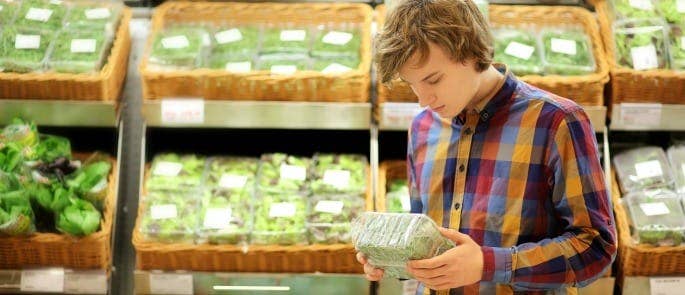
Vegetarians and vegans also need to make sure they get enough Omega 3, a fatty acid essential for keeping your brain and cells healthy, as the body cannot produce it on its own. Try a handful of walnuts, tofu or soya to get your fix.
Have a read of our article on A Vegan Grocery List if you want to learn more.
Breakfast Ideas for Teenagers
Missing out on breakfast is not a great lifestyle choice, as it means you miss out on the essential nutrients and energy needed to start your day on the right foot. Research shows that breakfast helps people to manage their weight and leaves you feeling alert and satiated, ready for the day ahead.
Try one of the following healthy breakfast ideas and see what difference it makes to the way you feel:
- Cereal with fresh fruit.
- Porridge with banana.
- Scrambled egg on toast.
- A boiled egg and soldiers.
- Yogurt and granola.
- A breakfast fruit muffin.
- Peanut butter on toast.
- A fruit smoothie.
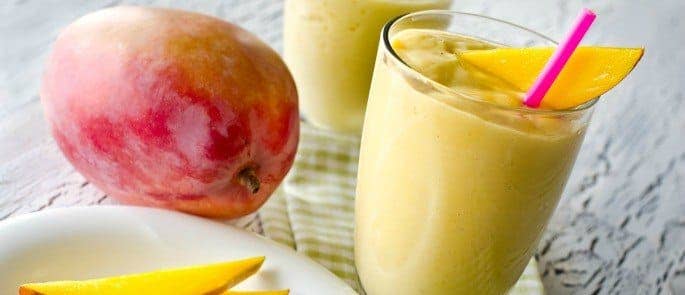
Getting Your 5-a-Day
Fresh, frozen, tinned, dried and juiced fruit and vegetables all count towards your 5-a-day target, so achieving the aim technically shouldn’t be too difficult! Fruit and veg are great for teenagers to eat as they fill you up, contain few calories and are packed full of vitamins, minerals and fibre.
One of your 5-a-day could be:
- 1 apple.
- 1 banana.
- 2 apricots.
- 1 slice of melon.
- 1 handful of berries or grapes.
- 2 tablespoons of raisins.
- 150ml (1 glass) of unsweetened fruit juice.
- 3 heaped tablespoons of beans.
- 2 tablespoons of raw or cooked vegetables.
- 1 bowl of salad.
- ½ an avocado.
- 1 cup of frozen peas.
- 1 tin of vegetable soup.
Need a Course?
Our Nutrition and Healthy Eating Course gives an introduction to nutrition and looks at the importance of healthy eating, the direct effect your diet can have on your health and wellbeing, and your responsibilities when keeping your diet nutritionally balanced.
Is Snacking Bad for a Healthy Diet?
Foods high in saturated fat (such as pies, biscuits, crisps, pastries and processed meat) and foods high in sugar (such as cakes, sweets and chocolate) are all high in calories. If you eat these foods as regular snacks, then you’re likely to become overweight as well as do your body some serious harm.
The key to snacking is to pick healthy foods and in small portions. Choose foods high in fibre and protein to keep you feeling full and less likely to reach for the biscuit tin.
Should I Cut Out Fast Food?
If chosen carefully, there’s no reason why you shouldn’t be allowed to eat fast food every now and then. The key is to keep fast food as a treat and not part of your regular diet: too much salt and fat is bad for your long-term health and so is best avoided.
The fat contained in fast food is trans fat, which is the type of fat bad for your health. Trans fat raises your cholesterol and can cause many health problems, so it’s always best avoided.

Unsaturated fats, on the other hand, such as those found in oils, eggs and butter are less bad for you and, in small amounts, are essential for a healthy diet. The key is to eat fatty foods in moderation to keep yourself healthy.
If you do opt for fast food, why not look out for the healthier options, such as choosing salad rather than fries? These small changes can make all the difference.
How Does Healthy Eating Help Hormones?
An adequate supply of zinc is needed in the diet for making many enzymes and hormones, including growth hormones, insulin and testosterone. This is particularly important for teenagers who are developing fast and need the best nutrition they can get.
Zinc can be found in red meat, seeds, spinach, cocoa, mushrooms and oysters – chances are you’re already getting a sufficient amount from your everyday diet.
Alcohol, sugar, saturated fat and caffeine intake have a strong impact on the amount of testosterone in your body, which can easily cause acne breakouts. Keep your consumption of these types of food down and you may see your skin improve!
B-vitamins and Omega 3 are also great nutrients to look out for in foods (try oily fish, wholegrain bread, eggs, milk and vegetables), as they help to balance hormone production, which is particularly supportive for girls suffering with negative symptoms of PMS.
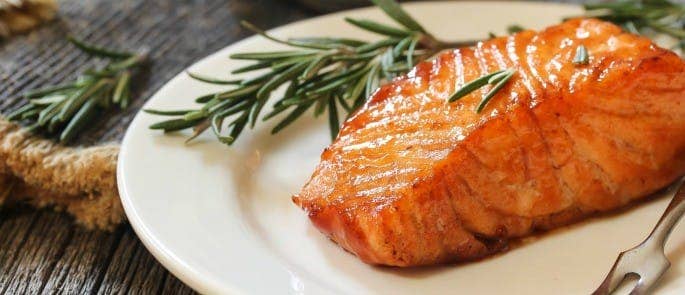
What to Eat for Healthy Skin
Healthy, clear and glowing skin is something that many teenagers wish for and, whilst some of it is simply down to ‘being a teenager’, there are definitely a few things you can add to your diet to give your skin a helping hand.
- Vitamin C – this is needed for a strong immune system and radiant skin. Vitamin C is an antioxidant that helps blemishes to heal and that produces collagen, which strengthens the capillaries supplying the skin. Some of the best sources of vitamin C are blueberries, blackcurrants, kiwi, broccoli, oranges, strawberries and sweet potato.
- Riboflavin (vitamin B2) – get a dose of this skin-helping mineral from Marmite, liver, kidney, fortified breakfast cereals, cheese, eggs, beef, yogurt, chicken and whole milk.
- Vitamin E – this protects the skin from cell damage and supports healthy skin growth. Foods high in vitamin E include almonds, avocado, hazelnuts, pine nuts and sunflower and corn oils.
- Selenium – this is a powerful antioxidant that works with vitamin C and vitamin E to improve your immune system. Just four Brazil nuts will provide the recommended daily amount (RDA) of selenium.
What to Eat for Healthy Bones
Throughout your teenage years your bones are continuing to grow, so it’s essential that you eat well in order to support them.
- Calcium – this is the best mineral for bones and all teenagers should aim to eat 3-4 portions a day. You can get calcium from dairy products, tofu, sesame seeds, green vegetables and tinned fish with small bones in.
- Vitamin D – this works with calcium to make bones stronger, although as many as 1 in 5 teenagers are deficient in vitamin D. The best source of vitamin D is the sun – just 20 minutes a day in the sunshine during the summer months is enough. Vitamin D is also found in small amounts in some foods, including oily fish, eggs, fortified spreads and cereals and powdered milk. Aim to eat these all year round.
- Magnesium – this mineral contributes towards the structure of your bones and can be found in cocoa powder, sunflower seeds, pumpkin seeds, mixed nuts, peanut butter, plain popcorn and some cereals.
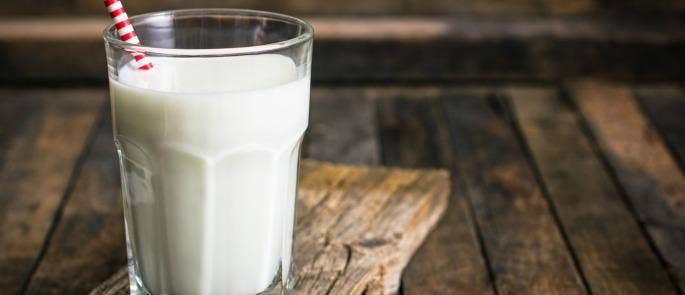
What to Eat for Healthy Blood
Iron – iron is needed for growth, muscle development and healthy blood. Teenagers often don’t have enough iron in their diet, found in red meat, oily fish and dark green leafy vegetables. This is particularly true for teenage girls, who often cut out red meat from their diet due to vegetarianism or concerns over weight management and fat intake. After menstruation begins, girls need more iron than boys to replace what is lost.
You can get iron from pate, red meat, fortified breakfast cereal, wholemeal bread, beans, lentils, chick peas, eggs and green leafy vegetables.
Potassium – this mineral can be obtained from all fruit and vegetables and helps your heart to beat, blood to flow and your muscles to move.
What to Eat for Healthy Eyes
Vitamins A, C, and E are all essential for good eyesight and can easily be obtained from a healthy diet. Vitamin A can be found in liver, butter, margarine, egg yolk, cream cheese, oily fish and whole milk. Don’t forget the carrots too!
Omega 3 is also good for your eyes so get plenty of oily fish in your diet such as sardines, mackerel and tuna.
As long as you aim to eat a varied, balanced diet, full of different fruits and vegetables and ideal sources of protein – among other essential nutrients – there’s nothing stopping you from keeping your teenage body healthy and maintaining that health as you continue to grow.
Further Resources
- The Healthy Eating Pyramid
- Teenage Stress Quiz
- Does The Eatwell Guide Lead to a Balanced Diet?
- Nutrition & Healthy Eating Course
- 10 Kitchen Safety Rules that Children Need to Know
- Free Food Hygiene Worksheets for Children
- A Healthy Eating Plan for Fussy Eaters
- Nutrition & Healthy Eating Quiz
- Changes in Eating Habits Over the Years: Comparing Diets Now & Then






